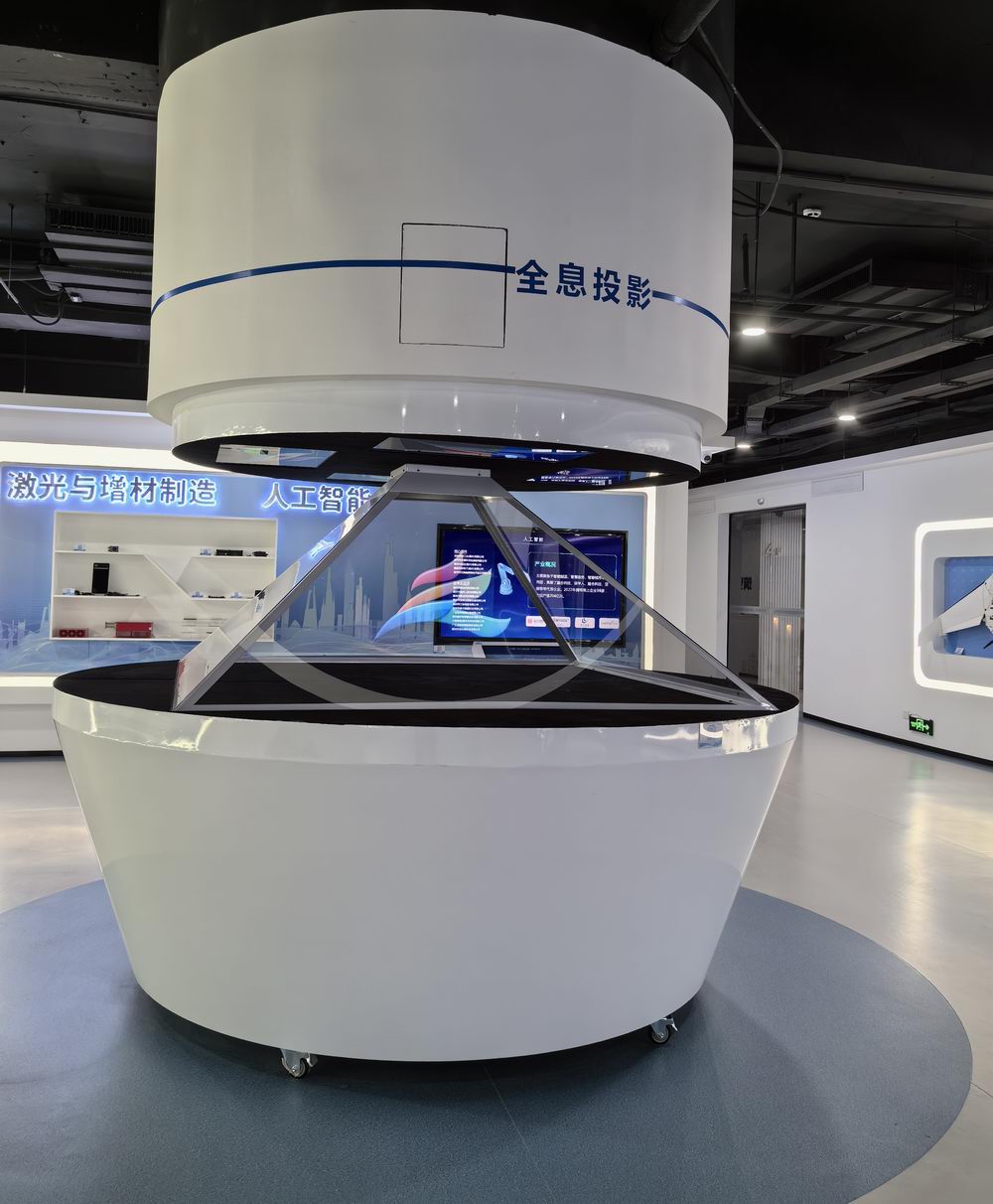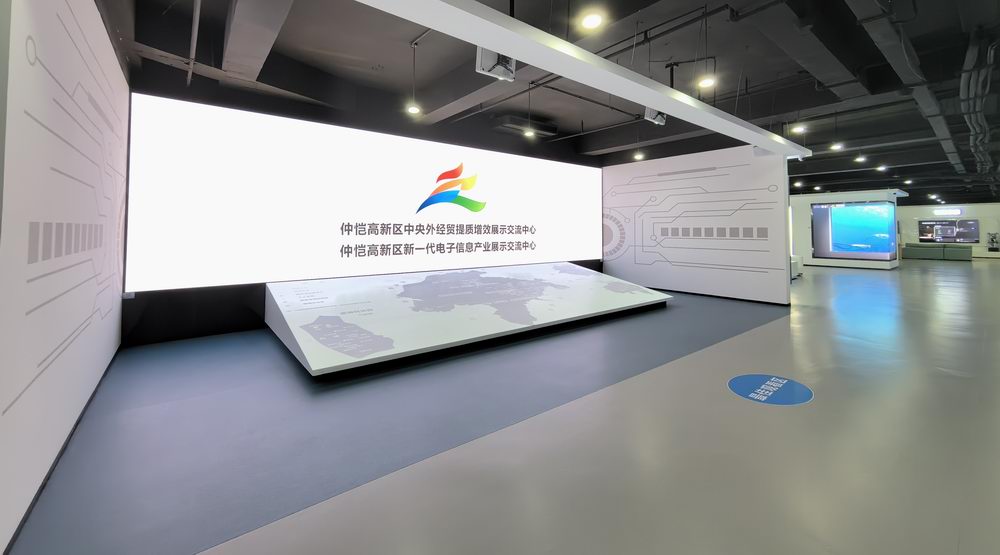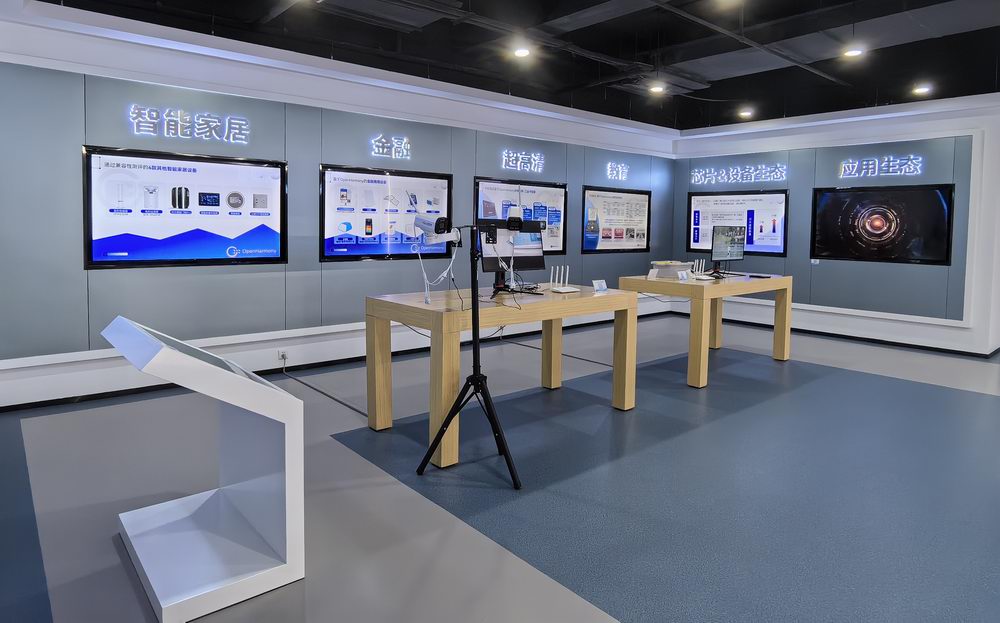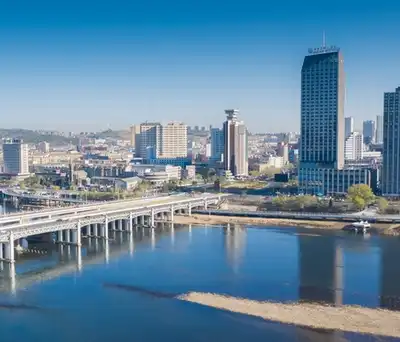How Smart City Construction Transforms Urban Living

Smart city construction is revolutionizing urban landscapes with advanced technologies. This transformation goes beyond modernizing infrastructure; it significantly enhances residents' quality of life. Urban areas are experiencing a surge in smart city adoption, with revenues soaring from $43.72 billion in 2020 to $58.98 billion in 2021. This growth corresponds with the rising urban population, projected to reach 68% by 2050. The Smart City Construction Pioneer Zone and the electronic information cloud platform are crucial in supporting enterprises within the Zhongkai High-tech Zone, driving innovation and economic growth.
Understanding Smart City Technologies

Internet of Things (IoT)
Role in smart city infrastructure
The Internet of Things (IoT) plays a vital role in smart city infrastructure. IoT devices connect various urban systems, creating a network that enhances efficiency and sustainability. Sensors monitor everything from traffic flow to energy consumption. This data helps city planners make informed decisions. IoT integration leads to smarter resource management, reducing waste and improving quality of life.
Examples of IoT applications in urban settings
IoT applications in urban settings are diverse and impactful. Smart streetlights adjust brightness based on pedestrian activity, saving energy. Waste management systems use sensors to optimize collection routes, reducing emissions. Public transportation benefits from real-time tracking, providing commuters with accurate arrival times. These examples highlight how IoT transforms everyday urban experiences.
Artificial Intelligence (AI)
Enhancing city management and services
Artificial Intelligence (AI) enhances city management and services by analyzing vast amounts of data. AI algorithms predict traffic patterns, allowing for better road management. Emergency services use AI to allocate resources efficiently, reducing response times. AI-driven platforms improve public safety by monitoring surveillance footage for unusual activities. These advancements streamline city operations and enhance residents' lives.
AI-driven solutions for urban challenges
AI-driven solutions address various urban challenges effectively. Predictive analytics anticipate maintenance needs for infrastructure, preventing costly breakdowns. AI optimizes energy usage in buildings, promoting sustainability. In the Zhongkai High-tech Zone, AI supports enterprises through the Electronic Information Cloud Platform. This platform offers data insights, helping businesses innovate and grow. AI's versatility makes it a cornerstone of smart city development.
Big Data and Analytics
Data collection and analysis for city planning
Big Data and Analytics revolutionize city planning by providing detailed insights. Cities collect data from multiple sources, including IoT devices and social media. Analysts process this information to identify trends and areas for improvement. Data-driven planning enhances urban development, ensuring resources meet residents' needs. This approach fosters more livable and efficient cities.
Impact on decision-making processes
Data analytics significantly impact decision-making processes in smart cities. Real-time data allows for quick responses to emerging issues. City officials use analytics to evaluate policy effectiveness and adjust strategies accordingly. The Zhongkai High-tech Zone benefits from the Electronic Information Cloud Platform, which aids enterprises in making informed decisions. This support accelerates innovation and economic growth, showcasing the power of data in urban transformation.
Impacts on Urban Living
Improved Transportation Systems
Smart traffic management
Smart cities use advanced traffic management systems to enhance urban mobility. Sensors and cameras monitor roads, providing real-time data to control traffic lights. This reduces congestion and improves travel times. Cities like Singapore have implemented these systems successfully, resulting in smoother traffic flow and reduced emissions.
Integration of autonomous vehicles
Autonomous vehicles are becoming a key part of smart city transportation. These vehicles communicate with infrastructure to navigate safely and efficiently. Cities like San Francisco are testing autonomous buses to provide reliable public transport. This innovation promises safer roads and more convenient travel options.
Enhanced Public Services
Smart healthcare solutions
Smart cities offer innovative healthcare solutions that improve access and efficiency. Telemedicine platforms connect patients with doctors remotely, reducing the need for in-person visits. Wearable devices monitor health conditions and send data to healthcare providers. This approach enhances patient care and reduces healthcare costs.
Efficient waste management systems
Efficient waste management is crucial for sustainable urban living. Smart bins equipped with sensors alert collection services when full. This optimizes collection routes and reduces fuel consumption. Cities like Seoul have implemented these systems, leading to cleaner streets and lower operational costs.
Sustainable Urban Development
Energy-efficient buildings
Energy-efficient buildings play a vital role in sustainable urban development. Smart technologies regulate heating, cooling, and lighting based on occupancy. This reduces energy consumption and lowers utility bills. The Zhongkai High-tech Zone incorporates these technologies to support enterprises in achieving sustainability goals.
Green spaces and environmental benefits
Green spaces provide essential environmental benefits in smart cities. Parks and gardens improve air quality and offer recreational areas for residents. Urban planners integrate green roofs and walls to enhance biodiversity. These initiatives contribute to healthier and more attractive urban environments.
The Zhongkai High-tech Zone National Foreign Trade Transformation and Upgrading Base (Electronic Information) Cloud Platform supports enterprises by offering data-driven insights. This platform helps businesses innovate and grow, contributing to the overall development of the zone.
Comparative Analysis: Traditional vs. Smart Cities

Infrastructure Differences
Traditional infrastructure limitations
Traditional cities often struggle with outdated infrastructure. Roads and bridges wear out over time. Maintenance becomes costly and inefficient. Traffic congestion worsens as populations grow. Public transportation systems lack modern technology. Communication networks fail to meet the demands of a digital age. These limitations hinder urban development and quality of life.
Advantages of smart city infrastructure
Smart cities embrace cutting-edge technology. Infrastructure becomes more resilient and efficient. Sensors monitor roads and bridges for maintenance needs. Traffic management systems reduce congestion. Public transportation integrates real-time data for better service. Communication networks support high-speed internet access. Smart city infrastructure enhances urban living and fosters growth.
Quality of Life Improvements
Accessibility and convenience
Smart cities prioritize accessibility and convenience. Urban planning focuses on walkability and public transit. Residents enjoy easy access to services and amenities. Digital platforms streamline everyday tasks. Smart homes offer remote control of appliances and security. This focus on convenience improves daily life for all citizens.
Safety and security enhancements
Safety and security receive significant attention in smart cities. Surveillance systems use advanced technology for monitoring. Emergency response teams benefit from real-time data. Crime rates decrease with predictive policing strategies. Public spaces become safer through smart lighting and design. These enhancements create a secure environment for residents.
The Zhongkai High-tech Zone National Foreign Trade Transformation and Upgrading Base (Electronic Information) Cloud Platform plays a crucial role in supporting enterprises. Businesses gain access to valuable data insights. The platform aids decision-making and innovation. Enterprises experience growth and success within the zone. This support contributes to the overall development of the Zhongkai High-tech Zone.
Future Implications and Case Studies
Emerging Trends in Smart City Development
Innovations on the Horizon
Smart cities are buzzing with new trends. The integration of 5G networks promises faster and more reliable connectivity. This will support everything from autonomous vehicles to real-time data analytics. Urban areas will see a rise in mixed-use developments. These spaces combine residential, commercial, and recreational facilities. This approach maximizes land use and enhances community living.
The Zhongkai High-tech Zone National Foreign Trade Transformation and Upgrading Base (Electronic Information) Cloud Platform is at the forefront of innovation. It provides enterprises with data-driven insights. Businesses can use this information to innovate and grow. The platform's role in supporting enterprises is crucial for future urban development.
Potential Challenges and Solutions
Smart city development faces several challenges. Data privacy concerns are at the top of the list. Cities must ensure that personal information remains secure. Implementing robust cybersecurity measures is essential. Infrastructure costs can also be a barrier. Developing smart infrastructure requires significant investment. Public-private partnerships can help share these costs.
The Zhongkai High-tech Zone offers solutions to these challenges. The Electronic Information Cloud Platform aids enterprises in navigating regulatory hurdles. It provides access to valuable resources and expertise. This support helps businesses overcome obstacles and thrive in a competitive environment.
Case Studies of Successful Smart Cities
Examples from Around the World
Barcelona stands out for its focus on sustainability and citizen engagement. The city has received recognition for its smart city initiatives. Barcelona's approach includes green spaces and energy-efficient buildings. These efforts improve residents' quality of life.
Singapore is a pioneer in smart city development. The city has implemented various technologies to enhance urban living. Smart traffic management and efficient waste systems are just a few examples. Singapore's commitment to innovation sets a benchmark for other cities.
Dubai embarks on an ambitious journey to become a leading smart city. The city focuses on technology and innovation. Dubai's initiatives include smart transportation and digital governance. These projects aim to create a seamless urban experience.
Lessons Learned and Best Practices
Successful smart cities share common traits. They prioritize sustainability and citizen engagement. These cities invest in technology to improve urban living. Collaboration between government, businesses, and citizens is key. This approach fosters innovation and addresses urban challenges.
The Zhongkai High-tech Zone exemplifies these best practices. The Electronic Information Cloud Platform supports enterprises in achieving their goals. Businesses gain access to data insights and resources. This assistance drives growth and success within the zone. The platform's role in urban development highlights the importance of collaboration and innovation.
Smart City Construction Pioneer Zone and Electronic Information Cloud Platform
Role of Smart City Construction Pioneer Zone
The Smart City Construction Pioneer Zone plays a crucial role in urban development. This zone acts as a hub for innovation and progress. Urban planners design the zone to integrate cutting-edge technologies. The zone attracts businesses that seek to leverage these advancements. Companies find opportunities to collaborate and grow within this environment. The zone fosters a community focused on sustainable and efficient urban living.
Contributions to Urban Development
The Smart City Construction Pioneer Zone contributes significantly to urban development. The zone enhances infrastructure with smart technologies. Cities experience improved transportation systems and energy management. The zone promotes economic growth by attracting tech-savvy enterprises. These businesses create jobs and stimulate local economies. The zone supports initiatives that prioritize environmental sustainability. Urban areas benefit from reduced pollution and increased green spaces.
Case Study: Huizhou Zhongkai High-tech Zone
The Huizhou Zhongkai High-tech Zone serves as an exemplary case study. This zone showcases the potential of smart city construction. The zone integrates advanced technologies into its infrastructure. Enterprises within the zone benefit from a supportive ecosystem. The zone provides resources and expertise to help businesses thrive. Companies enjoy access to state-of-the-art facilities and networks. The zone's success highlights the importance of strategic planning in urban development.
Electronic Information Cloud Platform
The electronic information cloud platform offers substantial advantages. This platform supports data management and urban planning. Cities use the platform to collect and analyze vast amounts of data. Planners make informed decisions based on real-time insights. The platform enhances communication between various urban systems. Cities achieve greater efficiency and responsiveness through this integration.
Integration in Smart City Infrastructure
The electronic information cloud platform integrates seamlessly into smart city infrastructure. Cities utilize the platform to connect different technological components. The platform enables efficient data sharing across systems. Urban planners rely on the platform for accurate and timely information. This integration leads to improved resource allocation and service delivery. Cities become more adaptive and resilient with the platform's support.
Benefits for Data Management and Urban Planning
The electronic information cloud platform provides numerous benefits for data management. Cities gain the ability to process large datasets quickly. Planners identify trends and patterns that inform future developments. The platform aids in optimizing urban services and reducing waste. Cities enhance their decision-making capabilities with data-driven insights. The platform supports sustainable growth and improved quality of life.
Smart city construction has revolutionized urban living by integrating advanced technologies. Cities have become more efficient and connected, enhancing the quality of life for residents. The Zhongkai High-tech Zone National Foreign Trade Transformation and Upgrading Base (Electronic Information) Cloud Platform plays a crucial role in supporting enterprises. Businesses gain valuable data insights, driving innovation and growth. Future advancements hold immense potential for further improving urban environments. Continued investment in smart city technologies will pave the way for sustainable and livable cities. Embracing these innovations ensures a brighter future for urban communities.
See Also
Pioneering Progress: The Future of High-Quality Development in Zhongkai
Enabling Achievement: Economic Transformation in Zhongkai High-tech Zone
Innovative Hub: Smart Terminal Advancements in Zhongkai
Huizhou's Lucrative Sector: An Intelligent Investment
Revolutionizing Technology: Advancements in Huizhou's High-tech Zone
Zhongkai High tech Zone National foreign trade transformation and Upgradi Base(Electronic Information)Cloud Platform.
Address: Zhongkai High-tech Zone,Huizhou City ,Guangdong,China
E-mail: huizhoueii@163.com 13510001271@163.com
Tel: +86-0752-3279220 Mobile: +86-13510001271


